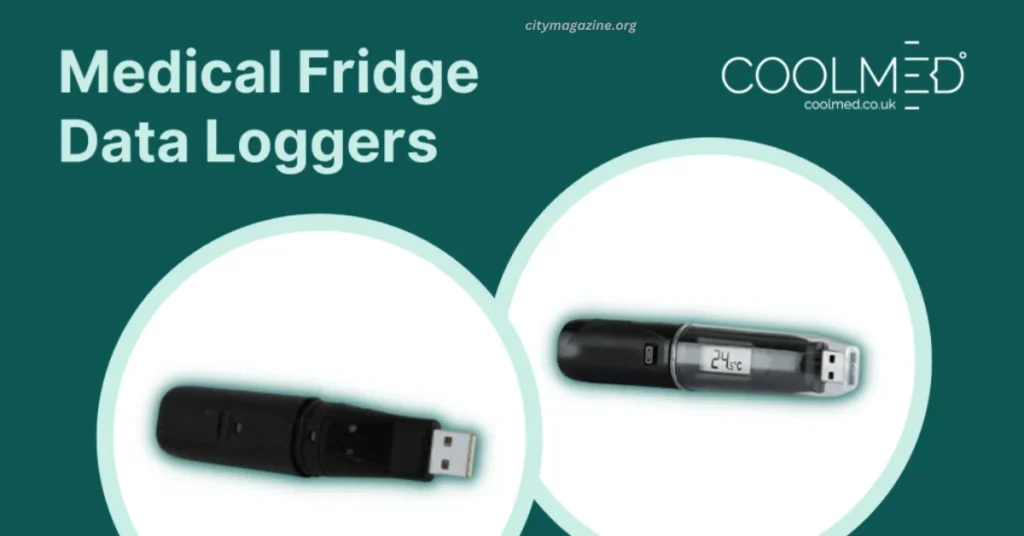Data loggers are vital tools that the healthcare industry relies on heavily. In this article, we will look at what a data logger is, how to use it in a hospital setting, and how the pandemic became responsible for market growth. In addition, other ways data loggers help in the healthcare industry.
What Is A Data Logger
A data logger is a portable, battery-operated measuring device. Depending on the type, a data logger can record and store data, including temperature, humidity, pressure, or voltage, to name a few. The data logger measures these environmental conditions with either internal sensors or external probes. In addition to a power source, a data logger contains a microprocessor and a storage facility.
The data collected by the device can be either downloaded later for analysis or transferred to a laptop or Smartphone. The size of a data logger makes it easy to place anywhere as they will not be in the way as they do their work unattended for various timeframes. Obtain measurements at specific time intervals that are manually programmed.
How Hospitals Use Data Loggers
Hospitals use data loggers in several different applications. Here is a look at the most common.
Autoclave Sterilization
An autoclave is part of the process of sterilizing equipment and materials. An autoclave uses steam in the sterilization process as it kills bacteria that boiling water cannot. A high-temperature data logger measures the autoclave conditions to verify that sterilization temperatures are met and maintained throughout the cleaning process.
Clean Rooms
Data loggers ensure patient, equipment, and employee safety by monitoring on-site air quality. Temperature, humidity, and carbon dioxide levels are all crucial to proper ventilation within a hospital setting. Data loggers measure temperature, humidity, and carbon dioxide levels to keep the facility safe for all who use it.
Cold Chain Monitoring
The temperature-controlled system that is vital for the transportation and storage of sensitive assets is the cold chain. It is called this as most items that travel through the system must be kept at cold temperatures to prevent spoilage, including many medications. Data loggers provide accurate tracking of those conditions.
Pharmaceutical Storage
Pharmaceuticals require precise environmental conditions. From the manufacturing phase to shipping and storage, these conditions require the use of a monitoring device. A data logger can record the temperatures and humidity levels these products must remain in through their life cycle. As a result, this includes biological pharmaceuticals that are temperature-sensitive and may spoil.
Vaccine Conditions
The most valuable tool at our disposal for preventing infection and disease is the vaccine. However, vaccines require proper temperature settings as it will impact the product’s effectiveness. A data logger that measures temperature provides the accurate collection and storage of readings, verifying compliance and proving that the vaccines are safe for use.
Pandemic Market Growth
The rollout of various vaccines and treatments during the pandemic showed a need for accurate monitoring of environmental conditions. As a result, data loggers became the tool of choice in the healthcare industry as they are portable, battery-operated, and built to withstand harsh conditions.
Vaccine storage conditions must remain at reduced temperatures. Electronic devices are the only method available to monitor this cold storage process as the conditions are far too cold and dangerous for a human. As more vaccines are released and distributed worldwide, the demand for data loggers continues to grow.
Data Loggers And Non-Compliance
Each data logger use involves the following parameters to monitor. For example, in cold room settings, the data logger ensures that the temperature does not increase to a level where the sensitive assets in storage can spoil. On the other hand, if the temperature climbs too high or slips out of the range preprogrammed into the device, it will trigger alerts.
The alert may be just an alarm depending on the data logger and the application. It may be an automated text message to a handheld device or an email. The purpose of the alert system is to draw the attention of someone to ensure human intervention.
Final Thoughts
Data loggers are vital to the healthcare industry. Not only do they measure and track various environmental conditions, but they will also send alerts to indicate when one of those conditions threatens the integrity of the product under observation. Without these devices, hospital equipment may not be sterilized correctly, sensitive assets may spoil, and the comfort of staff and patients could be compromised. Data loggers are quiet and go about their business mostly unnoticed. However, the contributions they make to the healthcare industry are incredible.




